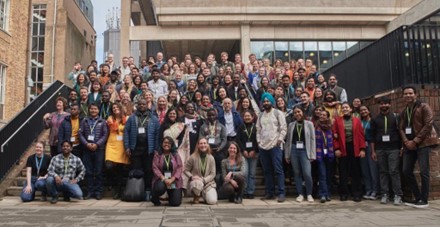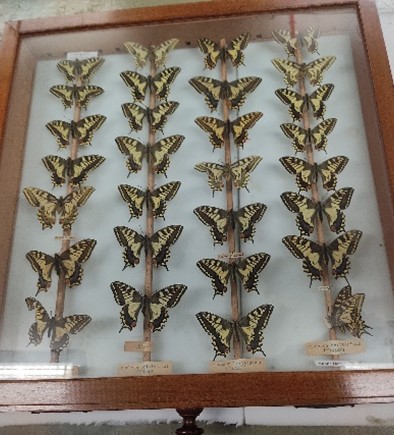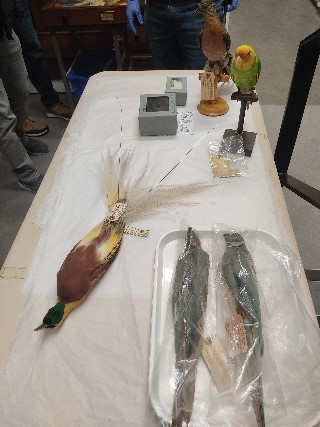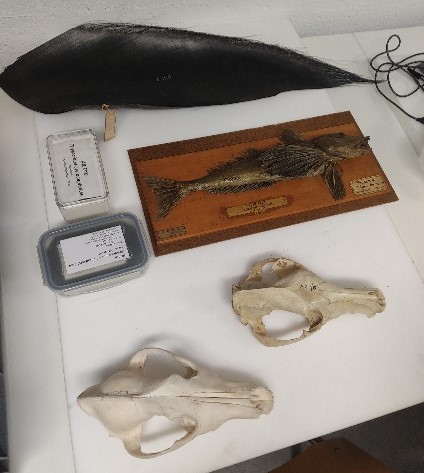Hi fellow students!
My name is Aina Rossinyol Fernàndez, and I am a second-year master’s student in the Ecology and Evolutionary Biology Programme here at the University of Helsinki. I am passionate about understanding and preserving the biodiversity of our planet, and I chose this master’s programme to deepen my knowledge of applied biodiversity conservation.
In March 2023, I attended the Student Conference in Conservation Science (SCCS) that took place in Cambridge, UK. SCCS is the only international series of conservation conferences entirely aimed at students. In case it is of your interest, SCCS is yearly conducted in Cambridge (UK), Brisbane (Australia), Beijing (China), Bangalore (India), New York (USA) and Budapest (Hungary).
The conference spanned three days and offered both in-person and online attendance options. Thanks to the HiLIFE Conference Grant, I had the great opportunity of participating in person. As the conference started early on the 28th of March, I decided to get to Cambridge on the 27th. I spent the whole morning exploring the city’s stunning architecture and streets as well as the river Cam. One of the things that surprised me the most was finding colleges all over around (Cambridge has a total of 31 colleges!). My favourite one was Christ’s College, as it is the one Charles Darwin stayed at. In the afternoon, I ended up joining a tour of 11 Indian people – including the guide – about the linkages in the history of Cambridge and India. Even though I was the only non-Indian participant and felt a bit lost in some of the explanations, it was such an interesting tour. This city has so much history to tell!
The conference days were very intense, but I was ready to absorb knowledge like a sponge! The conference included many interesting planetary talks, student oral presentations and poster presentations, as well as activities to facilitate networking and to introduce numerous both national and international institutions and organisations involved in conservation. I was truly admired by the wide range of incredible conservation work being done worldwide! Some of the vast array of topics covered included species distribution in the Anthropocene, human-wildlife conflict, ecosystem services in a changing world and people’s perceptions of nature.
The conference counted with an exciting programme of workshops. I wish I could have attended all of them, as they all seemed very interesting. However, we could just attend two of them. On the first conference day I attended the “Collections-based research” workshop. After discussing the diverse ways that collections can be used in biological research, we had a behind-the-scenes tour of the zoological collections housed in the University Museum of Zoology in Cambridge. The collections harbour over two million zoological specimens. Yes, over two million! The specimens are kept in storerooms at a constant temperature and humidity to avoid pests, such as beetles and moths, as well as to prevent mould formation. And now you may be wondering “Why do they put that much effort in store and catalogue this huge zoological collection?” The answer is easy. All these specimens collected over the past 200 years are a precious record of life on Earth and significantly contribute to scientific knowledge. For example, collections can provide essential data about animal distribution in an ever-changing world. Thousands of researchers from different disciplines from all over the world come along to study the collections to better understand and appreciate our natural world.
I especially enjoyed seeing specimens collected by Darwin. I would have literally spent days exploring these never-ending collections!
Fundraising is essential for conservation projects and thought that having the opportunity to meet face-to-face a donor would be a great opportunity to develop relevant skills on grant applications. That is why on the second day of the conference I attended the workshop entitled “Tips and tricks for writing grant applications: the view from a funder” held by Claire McNulty, the executive director of the National Geographic Society of Europe and the Middle East (Western Asia). For those who don’t know National Geographic Society, it awards grants to people working on conservation projects all over the world. Claire gave us practical and very useful tips, which can also be used in other funding sources, on how to develop a successful grant proposal.
As a young and aspiring conservationist, I believe that the best way to start my professional career is by learning from experienced tutors and experts in tropical conservation as well as from fellow like-minded students. Throughout the conference, I had the opportunity to interact with many enthusiastic students and renowned researchers and professors from all over the world. Speaking about projects, career paths and future plans, while exchanging ideas, was very inspiring to me, and I have no doubt that it will be valuable for my conservation journey. Additionally, getting to know conservation perspectives and practices from cultures all over the world allowed me to become more open-minded.
After those three very inspiring days, which combined learning, forging lifelong connections and overall unforgettable experiences, I can assure you that I left the conference with even more willingness to make a positive impact on tropical conservation.

The love for all living creatures is the most noble attribute of man – Charles Darwin
Even though this time I just attended, I can’t wait to present my own work in future SCCS conferences… who knows where! I am very grateful to HiLIFE for awarding me the HiLIFE Trainee Conference Grant and to SCCS Cambridge for organizing such an inspiring conference.
Thanks for reading me!
Aina Rossinyol






